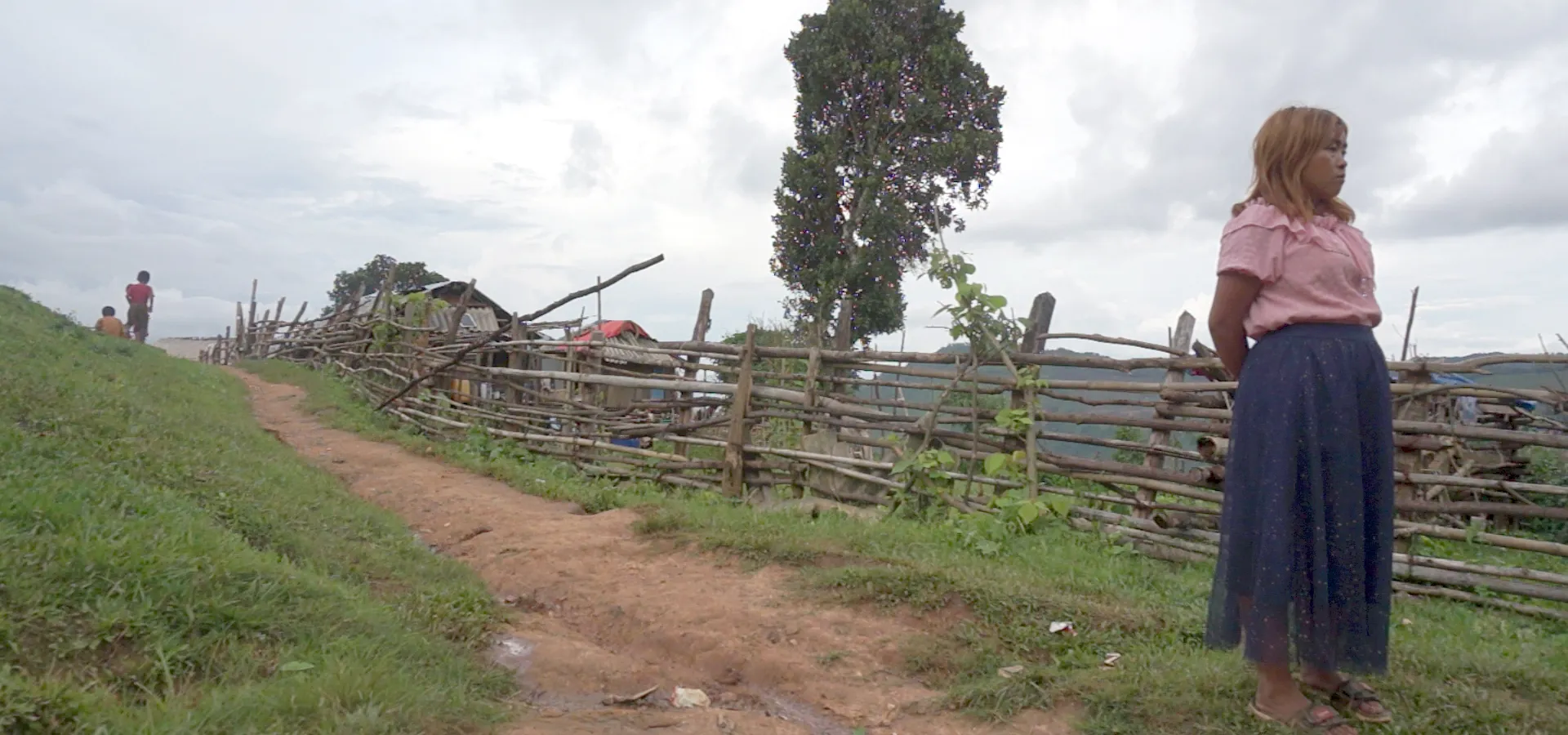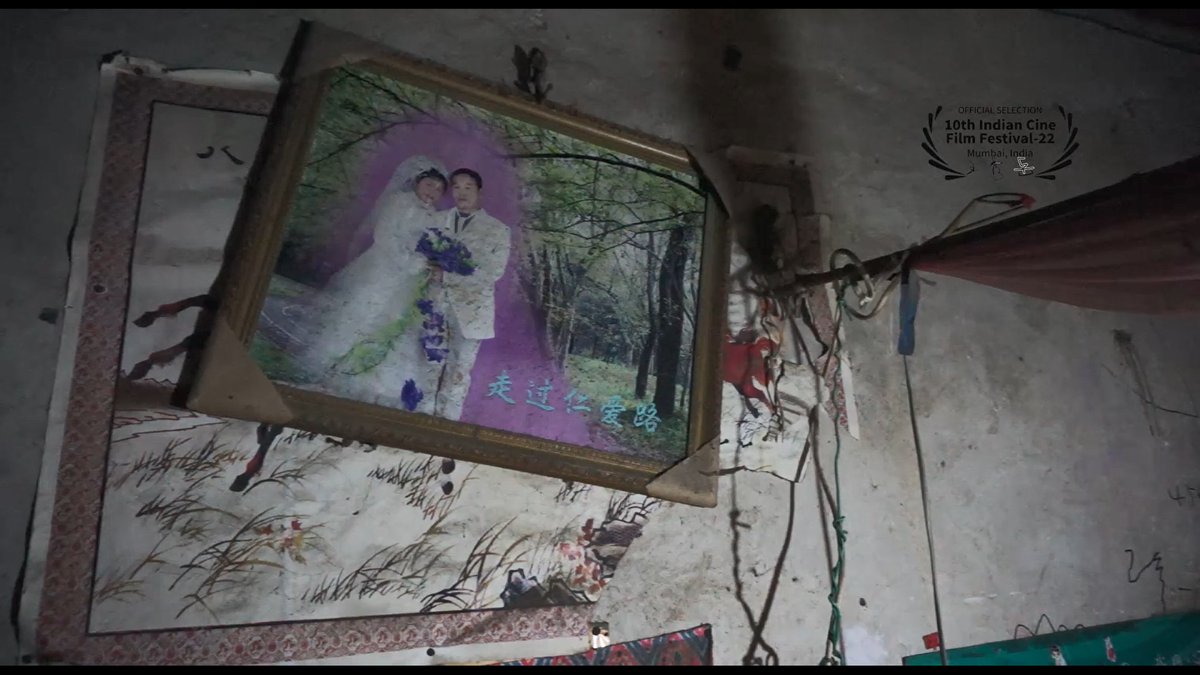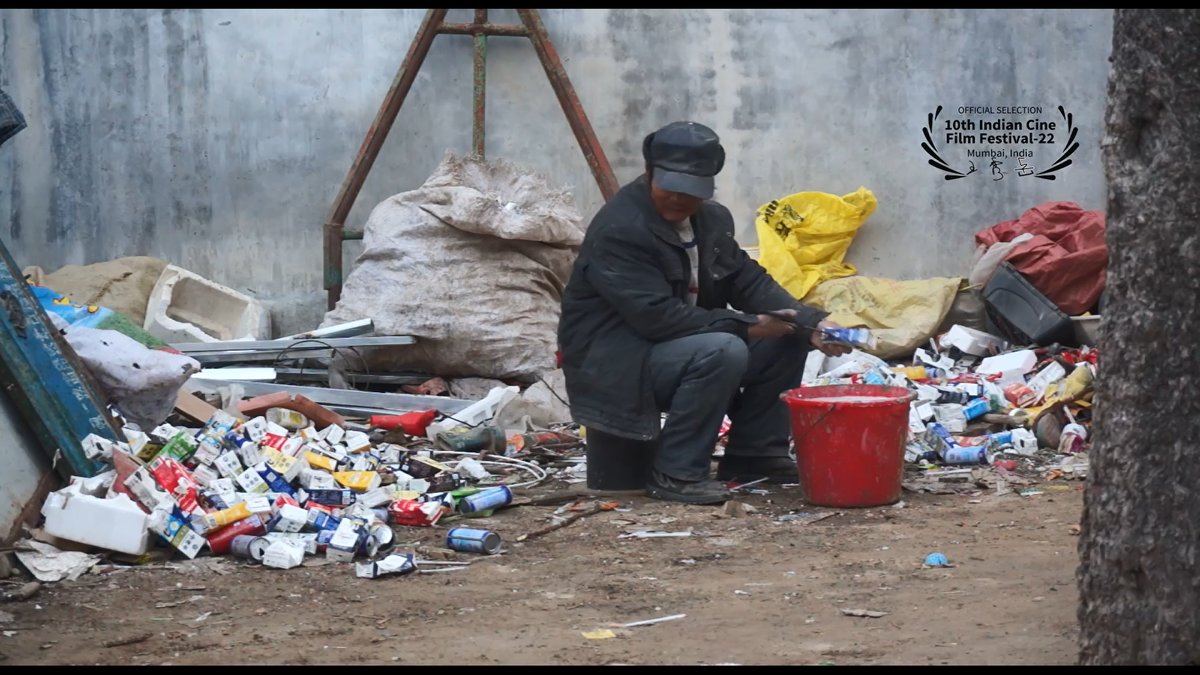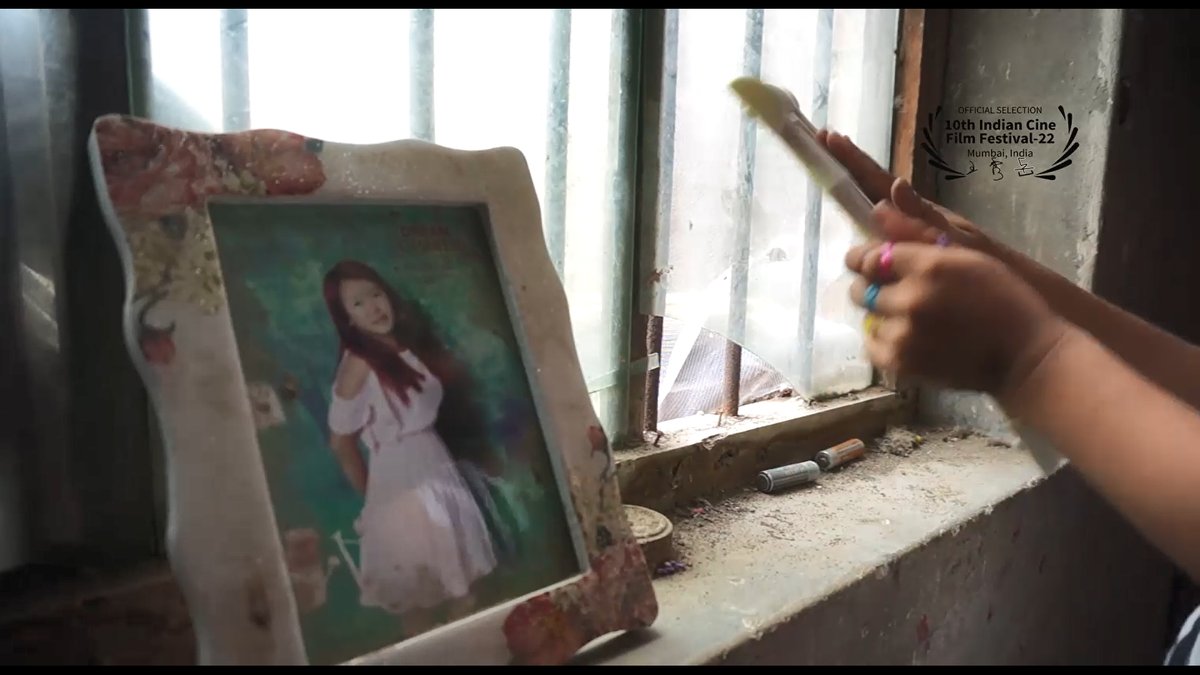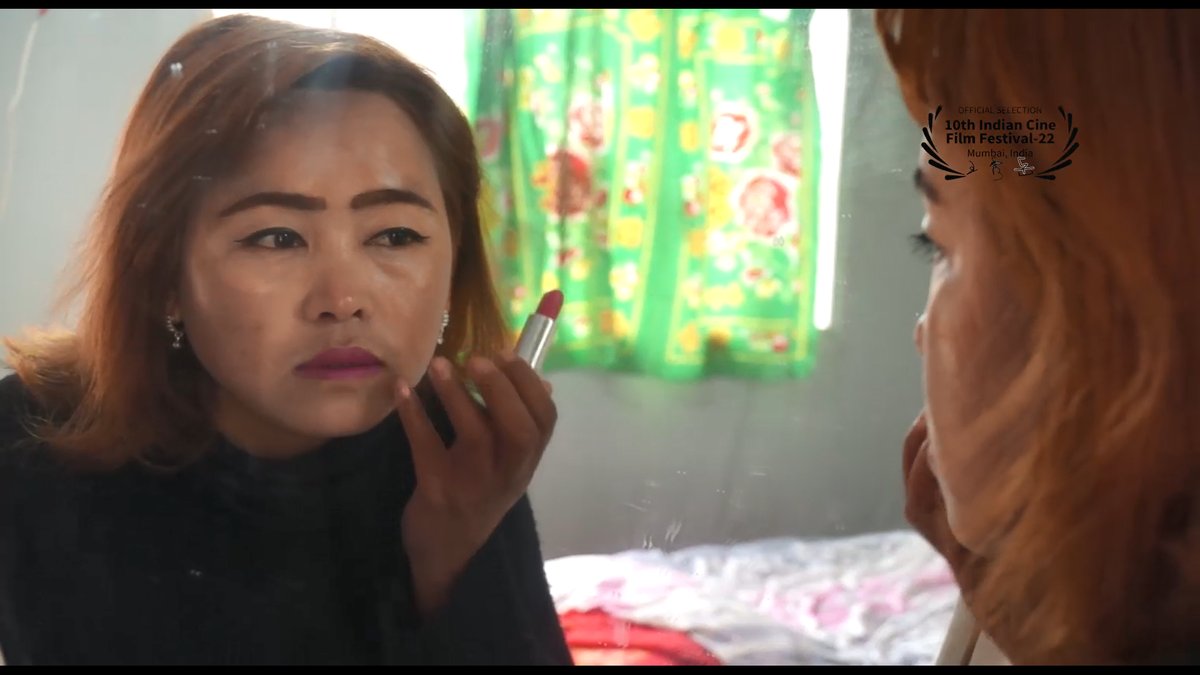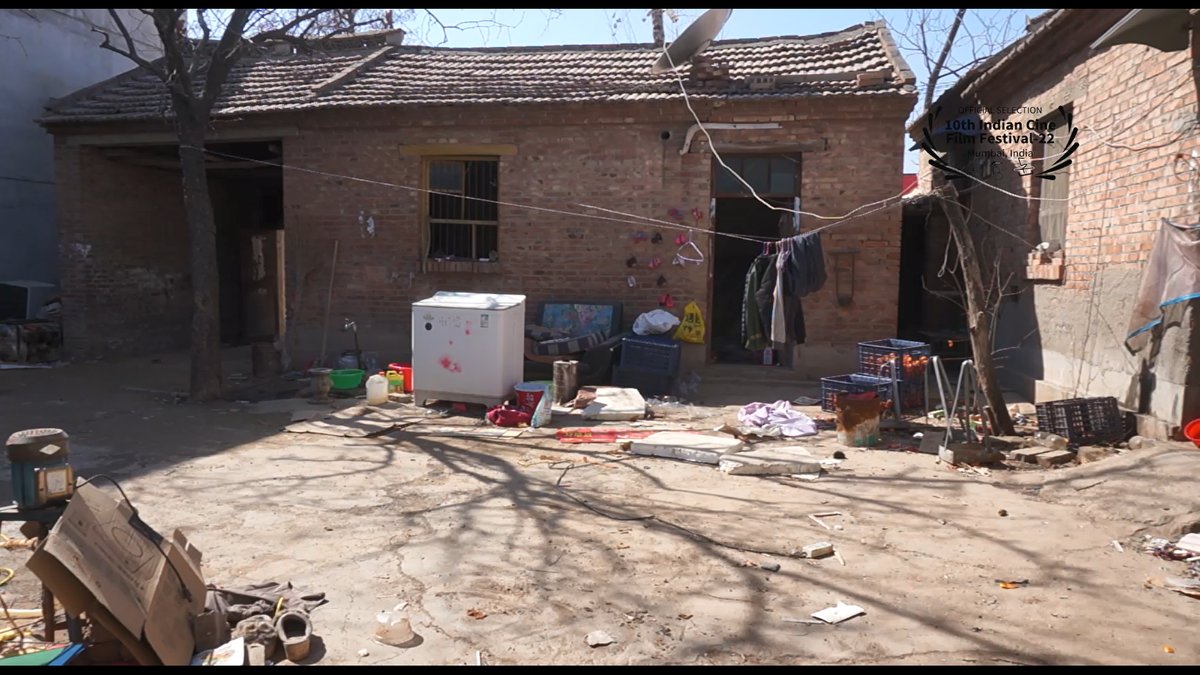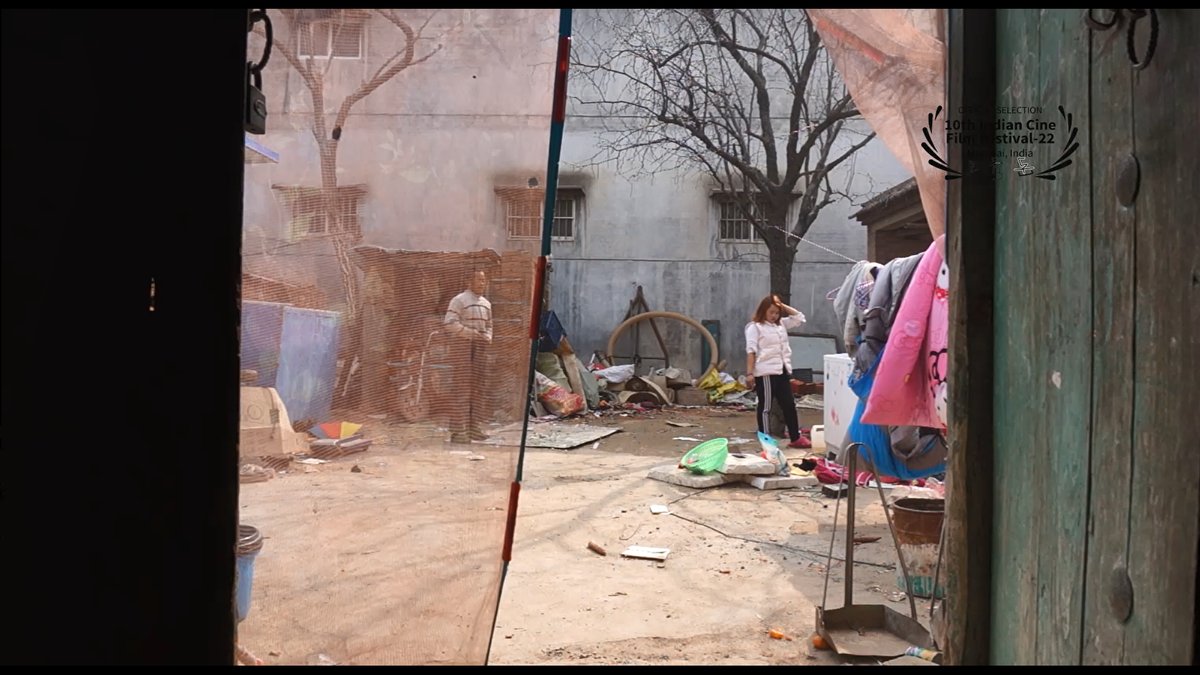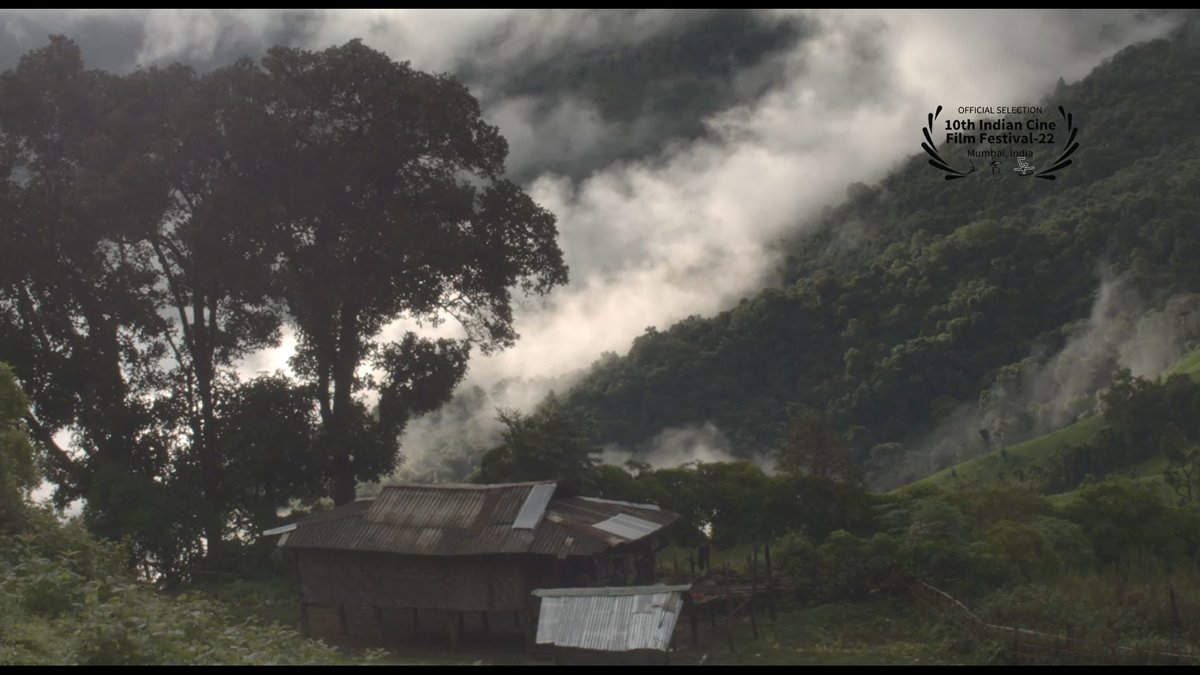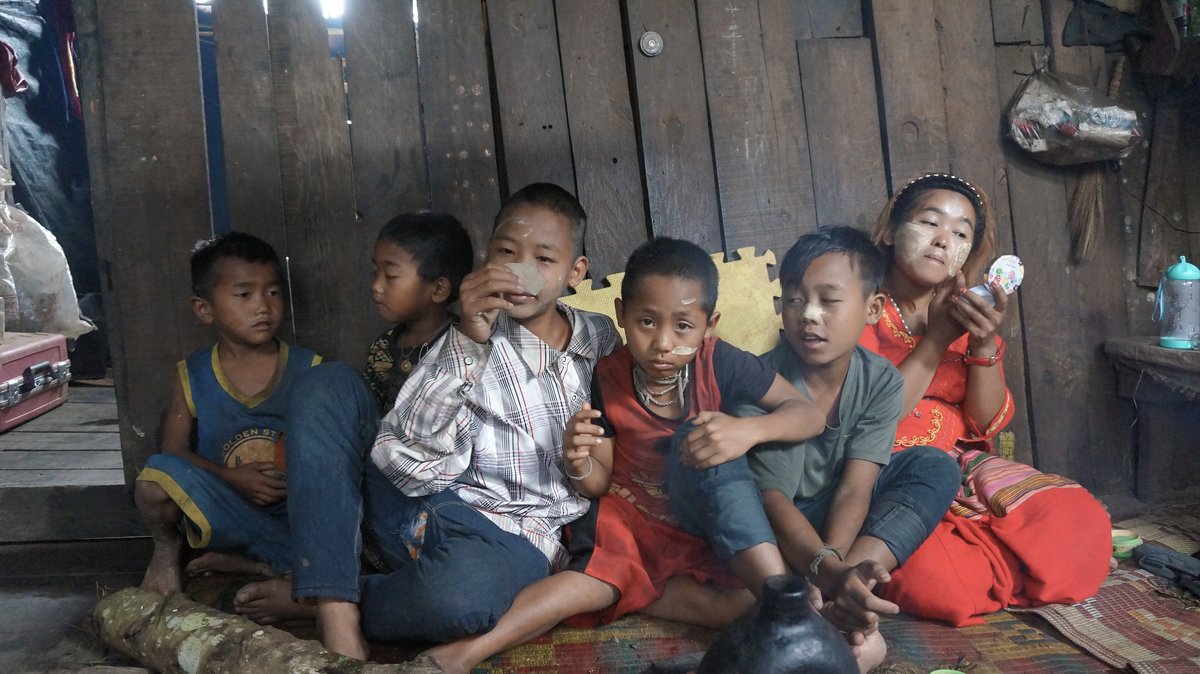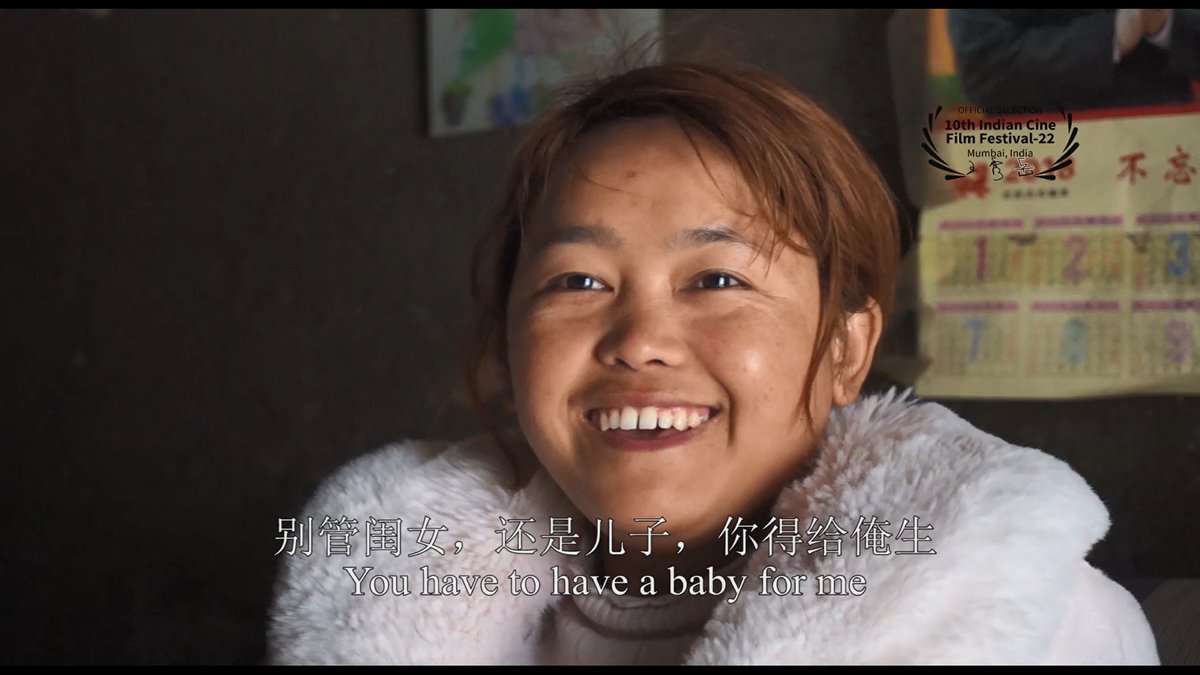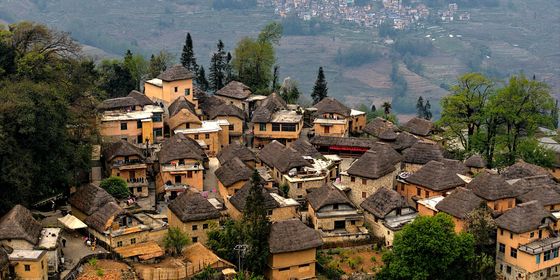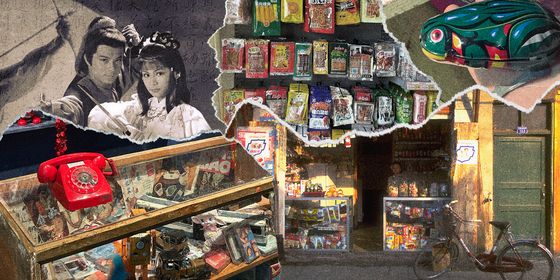Documentary director Wang Xiuyue follows a family of women trafficked to China from Myanmar as they seek autonomy and romance
A woman squats on the side of the street next to a fortune-teller who reads her palm. Her name is Larry and she claims to hail from Yunnan province in southwestern China, born to a mother who was already burdened with too many children to remember her birth year, so the clairvoyant can’t work out her fortune based on that. Still, the deep lines on Larry’s palm seem to reveal something. “I see your marriage isn’t going well,” the fortune-teller says.
While this might be far too often the reality for many rural women, the seer’s words ring particularly true for Larry. After all, she had just lied to this man. She does not come from Yunnan. She was born in Myanmar and wound up trafficked to a Chinese man in Shandong province as a “wife.”
This scene comes from a documentary, The Women from Myanmar, whose director Wang Xiuyue narrates today’s episode. Wang is a native of Shandong himself. Sheer coincidence guided him to fellow local Cao Haijiang, Larry’s husband. His documentary is a result of this fateful encounter and the ensuing four years during which Wang followed Larry and her family, shooting scenes from their life and documenting in the process the lives of these illegal female migrants who floated like a duckweed from the highlands of northern Myanmar. The whole story began with a fraudulent wedding in the fall of 2016.
1
A Sham Marriage
Wang Xiuyue: In the autumn of 2016, I heard that one of my distant relatives had just bought himself a wife from Guizhou or Yunnan province in the southwest. The guy was about my age and had spent over 100,000 yuan to arrange it through a matchmaker, only for the woman to run away after two or three months, taking some of his money. The whole incident really stirred my emotions.
In fact, as a Shandong local born in the 1980s and growing up in the ’90s, I’d heard plenty of these stories about trafficked wives, and they’d always moved me. I’d hear them from our neighbors and relatives, sometimes even from my dad’s colleagues. They spoke of women bought from Southeast Asian countries, Vietnam and Myanmar.
So, back to the present, I’d made up my mind to shoot a documentary on this very topic, starting from the case of my distant relative. This was how I ended up following a lead from his neighbors instead. They said that they knew of yet another of these women, this time from Myanmar. She’d deserted her family in a neighboring county.
Story FM: There is no shortage of single men in rural Shandong who buy women and start families with them. Cases of marital fraud are also a dime a dozen in the region, so the assumption was that any such woman fleeing her household was yet another fraudster.
Without thinking twice, Wang grabbed his equipment and showed up at the guy’s house, ready to shoot his documentary. He found himself in the yard of a dilapidated home of an old guy who collected and sold scraps for a living.
His name was Cao Haijiang, and he was Larry’s “husband.”
2
Cao Haijiang
Wang: The village was at the junction of the county seat and the countryside. The landscape featured mostly a series of invariably small, two-story family homes. That’s why I had no trouble locating Cao Haijiang’s pitiful place. His was the only single-story construction around.
The family had been struggling greatly in the two years following Larry’s disappearance. Cao Haijiang was white-haired and dressed in tatters. He lived alone with his two young children, living in dismal conditions. Even the ground was littered with all sorts of garbage and food waste. It really was a sorry sight.
Despite their dire straits, the children were remarkably bright. They were a boy and a girl in elementary school, and it was apparent that they were used to fending for themselves. Whenever their father left them without any lunch on one of his waste collecting trips, they’d munch on a steamed bun. It was really sad to see, and so when Cao inviting me to go somewhere for dinner, I replied, “Fine, but the kids are coming.”
During our meal, Cao insisted to know whether I was from some TV station. He kept asking me to go and broadcast the finished story on TV, trying to enlist my help to look for his absent wife. Indeed, at first I assumed this was the umpteenth case of marital fraud, but Cao wouldn’t have it. They’d been a family for so many years, he claimed—these were their children.
Maybe Larry had her reasons to leave her household. Whatever had happened, it motivated me to continue shooting.
3
Forbidden to Miss Their Mother
Story FM: Villagers hadn’t seen much of Larry before her disappearance. Up until that point, they mostly saw her for what she was in China —an undocumented migrant who’d been bought as a “foreign wife.” Her status among the villagers only changed when she fled and became known as the unstable airhead who had ruthlessly abandoned her children.
But Wang didn’t buy into any of that. After all, Larry had remained by Cao’s side for 10 years and gave him two children.That became Wang’s motivation to follow Cao and document his search for Larry. He believed that finding this man’s wife would be tantamount to discovering the truth and bringing closure to the whole family by means of their happy reunion. And if they didn’t ever find Larry, he could still capture the growth process for the two kids she’d left behind.
However, Wang would come to have a change of heart—and it would all be precisely because of those two children.
Wang: In fact, the kids were seemingly indifferent to their mother. I asked them whether they missed her and would want her back, and they both replied the same, “No.” I asked them, “Why’s that?”
Rather than responding right away, the little girl stayed silent for a while. She was the most sensitive of the pair. Her brother simply said, “I don’t know.”
I had to get along with the kids for a while before I truly got to understand what could make a child dislike their mother and no longer want her by their side. But, let me share with you what I saw in that time. That little girl, for example. She kept a picture of her mother by the windowsill next to her bed, one where a youthful, cheerful Larry grinned to the camera. Her daughter treasured this photograph, wiping any dust off its surface. What’s more, she’d show it to me and say, “Here, this is my mother.” She didn’t stop there; she brought Larry’s old clothes out of the wardrobe and wore them herself. So, at that moment I told her again that I was going to look for her mother, and wouldn’t she want to see her again? Instinctively, the girl replied, “Oh, okay! Where will I meet her?”
In fact, the kids were just parroting things the adults around them—including their own father—constantly told them. “Your mother doesn’t want you anymore, stop thinking about her. She’ll never come back.” I felt sorry for Larry, or rather, for all women like her. It also made me double down on my resolution to find these kids’ mother.
4
Mother and Daughter’s Shared Fate
Story FM: Wang was now actively involved with Larry’s search, but then he soon realized something else. Whenever he asked Cao for clue about his wife’s life and acquaintances, the man invariably faltered. Was Cao hiding something?
Then, the unexpected just happened. Larry suddenly returned.
It had been three years, and she did not come back on her will. Here, we meet a new character under Wang’s lens—Mary, Larry’s mother.
Wang: Mary was also in Shandong. How did she end up there, and what had her own life been like? During Larry’s second year in Shandong, Mary had contracted tuberculosis back in Myanmar, with dire prognosis given the lack of healthcare options available to her.
It was a matter of life or death, so Larry and Cao brought Mary to Yunnan, where she was hooked to an IV drip for a week before she could be transferred to a hospital in Shandong. But she couldn’t stay a guest in Cao’s home forever, and so he turned to a matchmaker who introduced his mother-in-law to an old guy from the neighboring county. The man was practically blind from some degenerative eye disease and spent 10,000 yuan to marry Mary, though neither she or Larry got their hands on that money. The matchmaker took a 50 percent cut, and Cao pocketed the rest.
Mary wept and wailed on her wedding day. She’d been a bride twice in Myanmar already, and had no desire to marry again in her old age. I say this, but since neither mother nor daughter had ID cards, I actually have no way to know their real ages for sure. They didn’t remember for sure, either. But I would guess Mary was about 50 years old at the time.
What’s more, Mary did not feel at home here in Shandong. She longed to breathe her last breath in Myanmar, but there was nobody to take her to her motherland. Larry had no money. These undocumented women could only hire a smuggler to drive them back to Myanmar in secret, but this would cost them tens of thousands of yuan.
To survive, Mary’s only option was this dubious marriage. She remained in Shandong, and Larry had come back to visit her. I didn’t meet her at first; she’d gone straight to her mother’s, and then found herself unable to leave. In fact, that was where I met her for the first time.
Larry was a short, somewhat plump woman in her 30s, clad in a black dress. Burmese people often have a dark complexion, and to her own chagrin Larry was no exception, which is why she was partial to the skin whitening cosmetics I saw her using as part of her makeup routine. Overall, she seemed pretty dissatisfied with herself.
But, I didn’t find her ugly at all. In fact, if you go by the account of some of the netizens she often chatted with to stave off her loneliness, she was quite the beauty.
There was something else to Larry’s physical appearance—she was disabled as a result of a childhood accident when she was 11 or 12 years old, breaking her leg chopping firewood up in the mountains. Her fracture wouldn’t have been all that serious, but once again the lack of adequate health care in her impoverished region compounded everything. Larry’s leg had to be kept in place with merely two wooden sticks as the fractured bone healed. By the time they removed them, her leg was botched for good.
When I saw Larry, I asked her whether she was happy to have returned. She eyed my camera without even looking at me and remained silent.
5
“We’ll Show You a Good Life”
I later discovered that Larry had been swindled into marrying another man.
The women had this small circle of fellow Burmese villagers, some of whom were actually involved in the trafficking business. Someone came up to Larry and sweet-talked her into abandoning her marriage. “No need to stay with Cao Haijiang, that old geezer. Let me find you a proper man. Young, well-off.”
The reality was that Larry found herself in a second sham marriage, with yet another perfect stranger whom she’d known for mere days. Her new groom was disabled himself. At his part-time job, some machine cut off his fingers. He’d been rendered unable to take on any heavy work, and was pretty much unable to provide for his new family—his wife Larry and, soon enough, their baby daughter Yuanyuan.
Mary cited her daughter’s new husband’s poverty as the main reason Larry shouldn’t leave again. It had taken her a good while to find her daughter; even Larry, being illiterate, hadn’t known where she ended up at first. By all accounts, Larry wound up worse off financially than she was with Cao. Still, she wanted to stay: her new husband, Yuanyuan’s father, was young enough that the pair could strike an actual conversation, and he treated her fairly well.
One may wonder why she returned, but in the end it was still all about money.
The truth is that Cao was aware that Larry had married someone else. Her trafficker had told him as much before threatening him into silence. But Cao came upon some unexpected riches when a gruesome car accident left his older brother, a bachelor, in a vegetative state. As he lay in his deathbed, someone approached Cao with a substantial bid. His dying brother’s kidneys were highly sought assets, worth hundreds of thousands of yuan. The pair struck a cruel deal. Cao figured he might as well—even if he were to turn down the money, his brother would soon no longer need any of his organs.
Cao’s fat purse emboldened him to finally contact Larry and urge her to return. “I’ve got money now, I’ll buy you a car.” He didn’t stop until he persuaded Larry to come back by his side.
But this wasn’t an easy choice for her. Larry must have felt very conflicted, even if she ultimately knew that women like her always had to put their own survival first. Yuanyuan’s father lost no time either, and remarried only two or three months after Larry left. She was well aware that this chapter of her life was irrevocably closed, and yet Larry said that thinking about Yuanyuan made her want to burst into tears.
Story FM: When the traffickers sold Larry into her second marriage, they told her. “Come with us, we’ll show you a good life.”
But what did that mean for a woman like Larry? Was she truly an innocent, easy-to-fool victim, or did she actually get to choose her own fate? It’s hard to say.
There’s no doubt that Cao was beaming during the Lunar New Year holidays that year. He took the whole family for a picture, including Mary, and heartily joked that he’d indeed buy Larry a big Mercedes-Benz, though in the end she only got an old scooter.
But just how long would the good days last?
6
A Transactional Marriage
It was easy to tell that Larry had returned. Though still humble, the family home was tidy and well-kept again. The children had also taken on a new look.
I actually shared in Cao’s thrill, and wanted to show it to the family. “Let’s go have a nice dinner! My treat.” Larry got to enjoy some chicken stew, the kids drank their fill of Coca Cola... Yes, I really was pleased with what I saw. I vividly remember my words back then that this reunion was their chance to finally lead a normal, happy family life.
But as I kept shooting my documentary, soon enough I understood that this was all a big, fragile bubble. Sure, Larry came back, but would they really stay together? The foundations of this family were rooted in a never-ending chain of vulnerability. Fate would surely tear them apart again.
You just had to look at this unlikely couple to realize as much. Cao was twenty years’ Larry’s senior. He was also disheveled and always wearing whatever rag he could find, whereas Larry did try to stay fashionable with her make-up and her puffy down jackets in either red or white. It was just really apparent that they had no business being together, or rather they did—their entire marriage was a cold transaction.
7
Longing for Romance
You’ll see plenty of scenes of Larry trying to get money from Cao in my documentary. I decided not to edit much of that out, because that’s a pretty accurate depiction of their daily life together. Cao was afraid Larry would flee again if she got too much money all at once, so she had to feed and clothe the whole family with a meager daily allowance of 50 yuan.
Before Larry left for the first time, she claimed to have been rather thrifty. She wore clothes that cost about 8 yuan and never wore makeup. Larry was not an educated woman. Her early youth had passed in an impoverished Burmese village before she wound up in quite a similar environment in rural Shandong, where her priority was feeding her family and finding them a roof to sleep beneath.
But afterward, her new husband had taken Larry to Sichuan, Shanxi, and other places he migrated to for work. She got to step foot in some big cities, and glimpsed a different life. I could see just how much the experience had changed her. She’d grown into her own person, and had her own desires.
I followed Larry on her solo getaways to the nearest small town, where she would sip on some milk tea before shopping for new clothes and getting her nails and hair done. I was filming a modern-day woman who’d somewhat discovered her own self and now longed for romance. Romance she would never get from Old Cao.
I was certain Larry would leave her family again, sooner or later. In the meantime, though she kept taking care of housework and childrearing, she took to voice-texting strangers online to stave off her loneliness.
Larry: Thank you for taking care of me. I’ll have no secrets with you. It’s so boring here sometimes.
Netizen A: Your husband doesn’t care about you? Well then, he’s not a good one.
Larry: Yeah, we’re not a good match. I’d have divorced him long ago if it wasn’t for my mother. I want to find someone my age that will love me forever. That’s all I’m asking for.
Netizen A: So where’s the point in staying with your husband?
Larry: Leaving him, not leaving him. It’s all the same. But should I leave him? Aw, man. I’m so upset. Really. Every day, so upset...
Netizen B: I miss you so much.
Larry: Really? Is that so? I miss you, too.
Netizen B: Yes, I really miss you loads. You’re so pretty, kind-hearted and well-spoken. Ah, if you married me and stayed with me forever, now that would be really nice!
Larry: Really? Do you really mean that?
Netizen C: You are a good lady.
Larry: Nah, no way. A good lady won’t have sexy talk late at night.
Her craving for love was apparent in these interactions. But a question remained unanswered as I kept filming: Why did Larry have to leave her home? Why did she insist on doing so?
8
The Northern Highlands of Myanmar
Story FM: Let’s track back to Larry’s lack of a legal ID. Here, Cao had failed her as well. He’d been reluctant and ultimately unwilling to ever help Larry regularize her situation in China throughout their decade together, even though he could have pulled some strings. His reasoning was that she would no longer be easy to keep around if she did get an ID card.
It goes without saying that Larry was affected by this. She couldn’t put down roots, nor was their relationship ever equal in financial terms. In any case, Cao had made his own proverbial bed. Hold on too tightly, and his marriage would forever remain a cold transaction devoid of any feelings. Grant his wife some real freedom, and he’d never shed his fear of abandonment. In the end, it really was an unescapable vicious circle.
As for Larry, once she could no longer accept this kind of life, she had to leave. She managed to offset some of her traveling costs by joining the gang that smuggled Burmese women into China, and on a scorching summer day she finally returned to her hometown in the northern highlands of Myanmar. Wang accompanied her.
Their first stop in the country was Wa State, an autonomous self-governing polity that the 2008 Constitution of Myanmar recognized as a division of Shan State and is otherwise known as “Little China.” In Pangkham, the capital, even the power grid and telecommunications infrastructure are pulled directly from neighboring Yunnan province in China.
The journey continued some 100 kilometers after Pangkham until they finally reached Larry’s hometown, deep in the mountainous highlands of northern Myanmar.
Wang: It was not an easy trip at all. The lack of proper roads and the rain made it so that we had to walk for several days until we finally reached our destination.
By all accounts, Larry’s birthplace was quite primitive. Since there was no electricity in the village, once my batteries ran out after a couple days, I had to trek down to the foot of the mountain to a rubber factory where I stayed overnight to recharge them. None of the twenty or thirty families in the village had an actual brick and mortar house. Instead, they lived in wooden and bamboo huts on stilts without much furniture.
9
A Trafficker in the Family
Story FM: With almost daily downpours, the rainforests in northern Myanmar are always wet. The villagers have little to do for their sustenance. The main source of economy in the region—rubber—is out of their reach, since all the surrounding factories are exclusively Chinese-managed. The villagers are left with two choices: growing a meager vegetable crop that they sell to the factory workers, or drug trafficking.
A curious trio had welcomed Wang and Larry at their arrival. One of them was an adult man who looked like a soldier; he was Larry’s oldest brother and he bought two teenage boys along. One was Larry’s youngest brother, and here’s the plot twist—the other was Larry’s own firstborn son. Larry’s son and his uncle were the same age. Mary had given birth to her youngest son in her 40s, while Larry had her oldest when she wasn’t even fifteen herself.
Here, Wang Xiuyue met a third woman, the most crucial piece in the puzzle of Larry’s story: her aunt. She had met the same fate in rural Shandong.
Wang: Though she shared a similar story with Mary and Larry, this rail-thin, dark-skinned woman was altogether very different in personality. Everything in her matched what you could define as our average preconception of someone involved in human trafficking. She told me a great deal of local stories, one of them involving Larry’s own travel to Shandong.
Larry’s aunt was one of the many Southeast Asian brides lured or otherwise smuggled into China back in the early ’90s. She was very young back then and found herself shipped to the countryside in Shandong, where she had two daughters before running away. In her flight, she met Cao. They went to Myanmar together, but were detained by the frontier police, who put Larry’s aunt behind bars for her human trafficking. She bribed some connections to get out of jail, but she could never return to China.
The end of their partnership made Cao fear for his future. He was no spring chicken by then, handicapped and by all accounts a mess of a man. So this woman introduced her own 16-year-old niece to him as a new wife. She figured Larry was crippled and couldn’t fend for herself anyway.
Larry was still largely a child herself, even though she’d already become a mother to a baby boy some six or seven months ago. Later, when the boy’s father was in prison for drug trafficking, Cao showed up to take Larry back to Shandong.
I once asked Larry, “Would you have agreed to marry Cao Haijiang if you’d known of his relationship with your aunt?” No, over her dead body, she replied. Her aunt must have felt some guilt herself, too. She was aware of the hardships that awaited her niece. But it was all a matter of survival.
10
The Value of a Woman
Starting from when she was 15, Larry had three cross-border marriages under her belt. Now, she hoped to pursue life on her own terms, which is to say she longed to find herself a lifelong, loving companion. That’s why she decided to head for Yunnan.
However, it was never easy for Larry. She felt helpless whenever she thought of her four children, and second-guessed her wish to start a family again.
As an undocumented Burmese female migrant sold off repeatedly for marriage, Larry had internalized the idea that birthing babies was her one true source of value.
“All those kids I already had, all scattered,” Larry confided in me. “I don’t want to have any more children.” But she wouldn’t be able to find anyone else to marry if she didn’t want kids. That was her fear, and based off what I’d seen myself in the village, I couldn’t deny it. Many women from her village shared her fate. A child there had downright told me that when villagers wanted to get rid of their daughters, they sold them off across the border. These women had been smuggled to places like Henan, Shandong, Hebei, Shanxi, and Northeast China, and only those who’d bore children could ever be allowed to return to Myanmar. A barren woman was a trapped woman, too.
There’s this credit line at the end of my documentary where I dedicate it all to them: “To the female Burmese migrants who’ve pursued their happiness away from their motherland.” This is something I’d never have done if I hadn’t visited myself. My experience there helped me gain a deeper understanding of Larry’s reasons to flee her alleged household and chase after her own notion of joy. All too often, women like her do not get to exercise this right. But Larry took a first, crucial step, made it through, and then finally started considering the possibility to pursue her own tiny morsel of romance.
11
I Am Cao Ruping
Story FM: Wang returned to China on his own after the filming ended. Larry dropped her plans to go to Yunnan and instead remained in Pangkham, where she found work in a clothing store. She seemed to have lost a lot of weight based on pictures in her WeChat Moments, but that was back when Wang could still keep in contact with her. Not long after, the pandemic began, and China also began blocking the numbers of many mobile phone users in northern Myanmar as part of a campaign against telecom fraud.
From that moment on, Wang never heard from Larry again, and neither did Cao Haijiang.
Larry’s second and final departure was a hard blow for the old guy. He’d stayed in touch with her, sending some money as well up until the blackout, but he never tried to look for her again. In his own words, when you can keep someone physically but not keep their heart, it’s time to let go of them.
Wang had really wanted to convey this news to Larry after the documentary was finished, but there was no way to get in touch with her. He’d filmed this story about a woman whose husband and children had looked for her while she searched for a way out of her own reality. In the end, that very woman—Larry—was gone.
In any case, Wang had to choose a title for his documentary. Why not use Larry’s name?
Wang: Larry was a woman of many names. Shandong locals found her given name too bothersome to pronounce, so they called her La La. However, Larry rebelled and chose to call herself Ruping, a homophone of “duckweed.” It was a fairly apt name for a woman who floated unmoored through life. This choice of name had me thinking for a good while. I remember how I’d asked her, “What’s your full name then?”
“Cao” she replied. “Cao Ruping.”
Images are all stills from Wang Xiuyue’s documentary The Women from Myanmar (2022)
___
This story is published as part of TWOC’s collaboration with Story FM, a renowned storytelling podcast in China. It has been translated from Chinese by TWOC and edited for clarity. The original can be listened to on Story FM’s channel on Himalaya and Apple Podcasts (in Chinese only).





